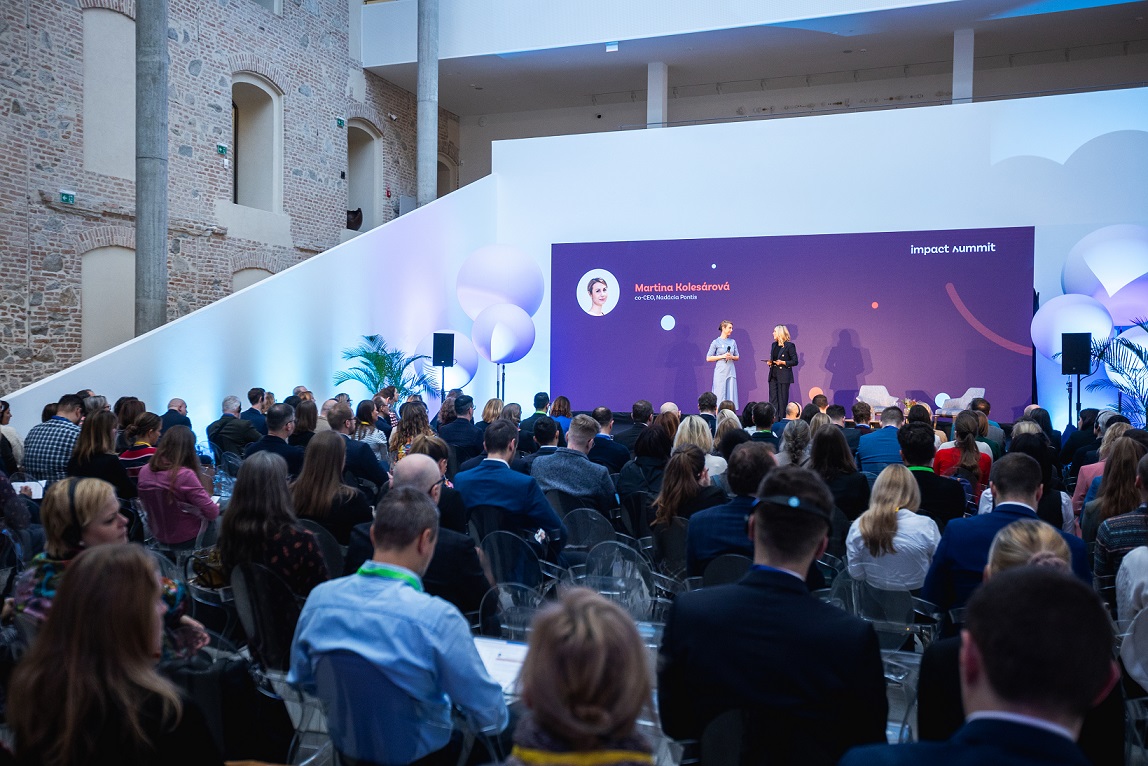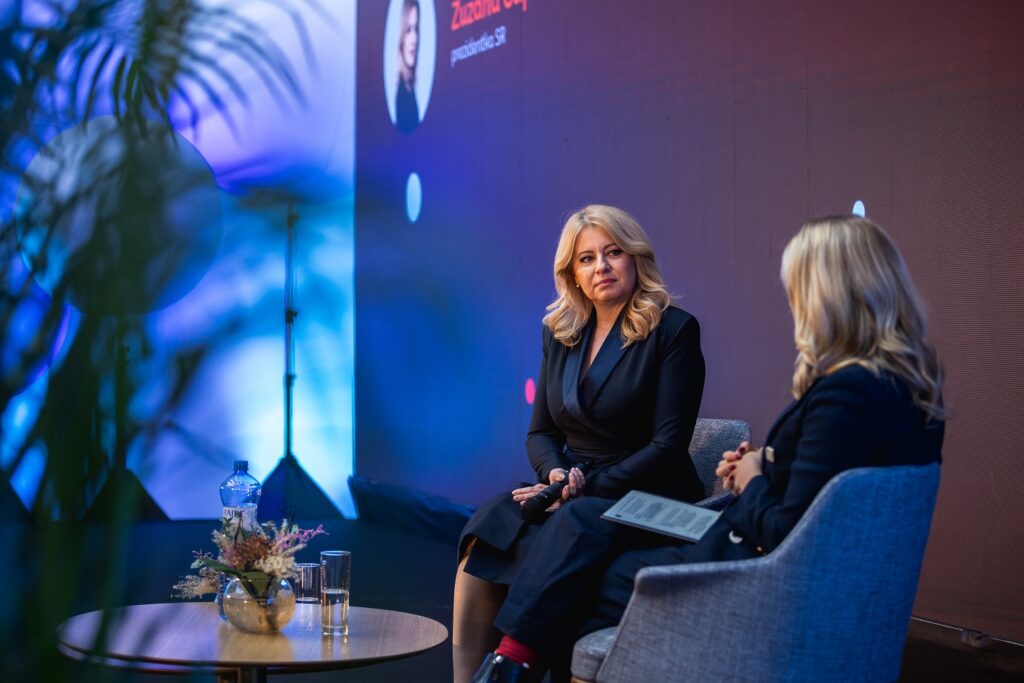Impact Summit welcomed the advisor of President Barack Obama as well as an academic authority on social innovation

The event brought together over 250 people from civil society, business and government. Impact Summit also created an opportunity for conversations on topical issues such as recession of democracy, local engagement and social innovation.
“Preserving democratic principles is not just a matter for top politicians. We all need to actively participate. Cooperation between public administration, representatives of the corporate sector and civil society also plays an important role. Impact Summit allows them to connect and discuss current issues in Slovakia and around the world,” says Martina Kolesárová, Executive Director of Pontis Foundation. She adds that the key areas of the summit this year are the recession of democracy and social innovation.
“I am very pleased that Ben Rhodes accepted our invitation. Ben served as an advisor to President Barack Obama. During that time, he was involved in almost all of the President’s key decisions and oversaw his national security communications, speechwriting, public diplomacy and global engagement programs,” adds M. Kolesárová.
Obama advisor in Bratislava: we can choose our leaders, we are not powerless
Ben Rhodes spoke at the summit about the rise of autocratic leaders, who gained power through standing out against globalization and deepening economic inequalities in society. His message to people from different bubbles was to get involved in community life and not to resign.
“The strategy of autocrats is to make us apathetic, to make us think that nothing can be changed. We can choose our leaders, we are not powerless,” stressed B. Rhodes.
Ben Rhodes told more on whether the rise of authoritarian leaders was inevitable and what the European Union has failed to do in an interview for SME, conducted directly at Impact Summit.

Ben Rhodes (left) was interviewed by host Michal Kovačič.
President Zuzana Čaputová was also among the speakers. She also took over the patronage of the event. “Democracy never works on autopilot. It requires our constant involvement and commitment. It is a vibrant thing, it needs our care and protection,” she said.

“I am not afraid that there would not be people in Slovakia who are firm enough in their values and in the fact that they will express their opinion when necessary,” Zuzana Čaputová said in a discussion with Veronika Cifrova Ostrihoňová.
Among the twenty speakers was also Stanford University professor Johanna Mair, an expert on social innovations. She introduced the concept of political innovations that have emerged as a response to the so-called recession of democracy – which is accompanied by an increase in polarization, authoritarianism or social conflict. She talked about the initiatives of many civil society organizations that identify challenges in the political system and cooperate to address them. Another guest was Lisa Witter, co-founder of the Apolitical Foundation, a global platform for civil servants from more than 160 countries. She presented inspiring examples of leadership in public service from Europe and explained why democracy can be a hot topic for philanthropy and investors.
Editor-in-chief of SME Beata Balogová, psychologist Dušan Ondrušek and sociologist Martin Slosiarik also provided their perspective on the state of democracy in Slovakia.
Innovative metropolises and modern Slovak organizations
“When completing the program of the summit, we collaborated with the National Democratic Institute, a global organization, which covered a panel on democracy and innovation in the environment of Central European local governments,” explained M. Kolesárová. The speakers were the vice-mayors of Bratislava, Gdańsk and Budapest Lenka Antalová Plavuchová, Monika Chabior and Gábor Kerpel-Fornius.
As a city, Gdansk is known for its inclusive policies, improving the skills of its administrative workers and supporting communities through the so-called neighborhood houses – centers co-financed by the city and run by residents. Hungary’s capital city, for its part, committed to follow the Smart Budapest concept – they strive to be a sustainable metropolis, improving the lives of their citizens through greater social responsibility and actively involving them in the urban planning process.
Impact Summit also featured representatives of Slovak organizations that work in innovative ways on topics such as transparency, cultivating the public debate and combating disinformation: Martina Bolibruchová – educational platform Zmudri, Jakub Hrbáň – initiative Climate Needs You, Martin Kováč – modern church Old Catholics in Slovakia, Michala Hrdinová – development program for administrative workers Public Leadership Academy, Ľuboš Kostelanský – Transparency International Slovakia and Michal Horský – platform for a fair discussion in a divided society DemDis.
All of these projects are currently part of the Pontis Foundation’s Impact Lab acceleration and incubation program, in which they receive mentoring, strengthen their potential and receive financial support.
There was also a discussion on the importance of co-creation in the implementation and support of social innovations. The speakers were Michaela Kršková, Director General of the Research, Development and Innovation Section at the Government Office, Rastislav Blažej from the Social Bank of Slovenská sporiteľňa and Michal Hladký, Director of Creative Industry Košice.